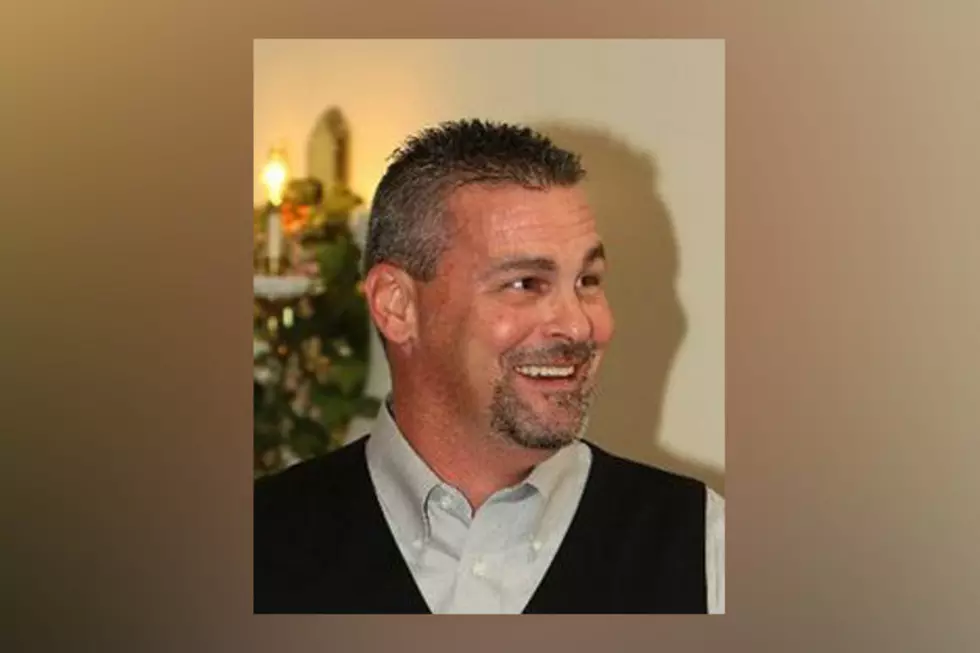
Court Records: New Casper City Councilman Violated Protection Orders, Was Jailed
“John, don’t you think that if I wanted her dead; if I wanted her killed she would have been dead a long time ago.’’
Before he moved from Lander about four years ago, Casper City Councilman-elect Bruce Knell, Jr., pleaded guilty to violating three protection orders and “threaten death by phone,” was jailed, and violated his probation and was jailed again, according to Fremont County and state district court records.
During that time, Knell also petitioned for Chapter 13 bankruptcy protection.
Wyoming U.S. Bankruptcy Judge Cathleen Parker dismissed the petition, citing unreasonable delays in the process to set up a repayment plan and acts of “bad faith” with his filings she called “deceitful.”
Knell denied most of these assertions in an interview with K2 Radio News, saying these issues are in the past and publishing them will only harm the city and his efforts to accomplish what he was elected to do.
Knell who will represent Ward I in central Casper, is scheduled to be sworn into office at the City Council meeting at 6 p.m. Tuesday.
“I think I can do a lot of good for the city,” he said.
Knell, 54, ran a self-funded campaign with $21,388.58 of his own money, with $10,300 spent on a campaign manager, and the rest on a billboard, mailings and signs, according to his campaign documents filed with the Natrona County Clerk.
He garnered 2,513 votes, second to Amber Pollock who received 3,432 of the total 9,902 votes cast, and both defeated two other candidates.
He had lived in Natrona County for three-and-a-half years when he filed to run for office, according to a change-of-address document filed with the U.S. Bankruptcy Court on Jan. 4, 2017.
Before that, Knell had been a long-time resident of Lander, where he and his ex-wife had a trucking company called Knell Transport, LLC, incorporated in May 2006, according to Wyoming Secretary of State records. (She was divested of her interest in the company at the end of 2013.)
He later sold the company for $8.2 million, he said.
Knell also has had other businesses including Knell Enterprises, LLC, which later would factor in events following his divorce filed against his wife in Fremont County District Court on Feb. 28, 2014.

The judgment and decree of divorce was issued on May 19, 2015, which granted his ex-wife, among other things, 49% of the assets of Knell Transport, LLC, valued at $541,973.10.
The state court granted her a lien against Knell’s property including the assets of the company, according bankruptcy court records.
Four months after the divorce decree, Knell filed for Chapter 13 bankruptcy protection on Sept. 17.
Two weeks later, Knell was charged in Lander Circuit Court with one misdemeanor count of “telephoning another and threatening to inflict injury or harm” to his ex-wife, and four misdemeanor counts of violating a temporary protection order.
According to an affidavit filed with the court on Oct. 6, 2016, a Fremont County Sheriff’s deputy on Oct. 1 was executing an arrest warrant for criminal contempt against Knell, and allowed him to move his vehicle before being taken into custody.
During that incident, Knell borrowed an employee’s phone, called his ex-wife and said, “When I get out of jail, I’m gonna kill you,” according to the affidavit.
Knell denied that to K2 Radio News, saying he told the deputy, “'John, don’t you think that if I wanted her dead; if I wanted her killed she would have been dead a long time ago.'’’
Instead of the threat, he told K2 Radio News that he told her, “‘I said to her, ‘why are you doing this, we have children together; why are you trying to do this; why are you trying to put me in jail?’”
The affidavit cited four protection order violations:
- Aug. 31, 2015 — “same location as petitioner/at or near petitioner’s residence.”
- Sept. 22 — “act intended to harass, bother, annoy, aggravate, intimidate, interfere with or cause petitioner to suffer undue stress or anxiety.”
- Aug. 31 — “communication by telephone.”
- Between Sept. 16 and Sept. 25 — “communication by other electronic means."
Knell was released from jail on Oct. 9. Five days later, he was jailed again for violating bond conditions, according to Fremont County Circuit Court records.
On Nov. 30, Knell pleaded guilty to the death threat count and three protection order violations before Fremont County Circuit Court Judge Robert Denhardt, according to the court filing on Dec. 1.
Knell told K2 Radio News that he disputed that. “I was convicted of them, I never pled guilty. I fought them from Day 1. I spent $100,000 fighting them. It was all BS.”
However, the “misdemeanor judgment and sentence” minutes from Fremont County Circuit Court filed on Dec. 1, 2015, show that he did plead guilty.
“The court finds the defendant knowingly and intelligently entered said plea(s), was competent to enter the plea(s), that it was voluntarily and not entered as a result of threats, force or promises, that there is a factual basis supporting the pleas and that the defendant is guilty as charged in counts 1., 2., 3., & 5.” (The first count was the threatening phone call, and the counts 2, 3 and 5 were the violation of a protection order. Count 4, the “communication by telephone” count, was dismissed.)
Denhardt ordered Knell to pay a $910 fine, and sentenced him to four consecutive 180-day jail sentences, awarded him credit for 54 days served in jail. He suspended the rest of the jail time on condition that he complied with four 180-day terms of probation to end Nov. 29, 2017.
Terms of the probation included not being arrested for other crimes, comply with the 2015 family violence protection order, attend counseling and complete programs for cognitive behavior change, anger management, parenting and batterers.
In an apology filed with the court, Knell wrote to his ex-wife saying, “I’m sorry — I’m sorry for threatening you and for harassing you. I never thought I’d be capable of that type of behavior. … I will respect yours and the courts direction from here on and I will have no contact with you in any way. …”
Less than seven months later, Knell again violated the protection order, according to Fremont County Circuit Court records.
His ex-wife filed a complaint with the court on July 14, 2016, saying he placed himself in close proximity to her at a beach at Boysen Reservoir on June 17 and July 9, in Lander on July 4.
On July 22, a deputy Fremont County Attorney cited those violations and filed a petition to revoke Knell’s probation.
Three days later, Knell denied the allegations in court, was arrested and held without bond.
On Aug. 23, a Fremont County treatment court official wrote to the court, saying Knell had completed the parenting and anger management programs, and said his children seemed comfortable during supervised visits.
On Aug. 24, the court held an evidentiary hearing before Circuit Court Judge Curt Haws, who was appointed to the case after Denhardt recused himself.
On Sept. 6, Haws revoked Knell’s probation.
The judge wrote Knell’s presentation at the evidentiary hearing “was designed to relieve him from responsibility for the events of June 17 and July 9, 2016,” adding that Knell blamed the courts for issuing confusing orders and saying he wasn’t too familiar with the contents of the orders.
“This Court finds that any lack of clarity is the product of Defendant’s desire to read any and all orders in a way that allows him to do as he pleases,” Haws wrote.
On Sept. 21, Haws sentenced Knell to a 90-day jail term, with credit for time served.
Several weeks later, Knell asked the court to be released from jail to supervise his crew to keep a water hauling contract, that he would be traveling to Casper and Midwest for work, and the job would enable him to meet his obligations for child support, bankruptcy court and other bills.
The state agreed with the request “with considerable reservations.”
But on Oct. 16, a Deputy Fremont County Attorney filed a motion with the court to revoke the permission for work release. Among other things, he spent Oct. 9 in Casper playing golf with his girlfriend and her father: “The Defendant has used his ‘work release’ time for personal and recreational reasons which are unrelated to his business interests and which do nothing to meet his financial obligations to the Court or to the victim.”
Knell told K2 Radio news that the father was a land man and the two talked business during the golf outing, but the court decided against him.
On Oct. 27, Judge Haws revoked Knell’s probation and ordered him to serve the rest of his jail sentence.
Regarding his future work with the Casper City Council, which has made domestic violence prevention a priority, Knell told K2 Radio News that he’s an advocate for domestic violence victims. He never once laid a hand on his ex-wife, he said.
Meanwhile, Knell’s bankruptcy petition was winding its way through the U.S. Bankruptcy Court.
After nearly a year-and-a-half of court filings and hearings, Bankruptcy Judge Parker on Feb. 24, 2017, agreed with Knell’s ex-wife and the Standing Chapter 13 Trustee and dismissed Knell’s petition. (A successful Chapter 13 bankruptcy petition ends with a “discharge” of the petition, with the court approving a debtor's plan to repay creditors.)
In her dismissal, Parker noted that the 2005 Bankruptcy Abuse Prevention and Consumer Protection Act “fast-tracked” the Chapter 13 plan confirmation process, which requires debtors to file a plan within 14 days of filing the petition.
Knell requested, and was granted, an initial extension and subsequent amended extension for the first plan, which Parker rejected.
Knell was later granted the opportunity to file a second amended petition after the court granted extensions because he was in jail, Parker wrote.
However, that second plan drew objections from the Internal Revenue Service, the Trustee, and Knell’s ex-wife, who was the primary secured creditor. The IRS objected because the amended plan based on Knell’s 2014 tax return decreased the amount owed to it stated on the first plan. (Knell’s bankruptcy attorney later disagreed with Parker’s order, saying Knell received a refund in 2015, contrary to him owing the IRS.)
Despite being allowed to file an amended plan, Parker wrote Knell acted in bad faith because he failed to list a significant asset, and failed to provide accurate and complete bankruptcy petition schedules that listed assets, debts and valuations.
Knell also inflated the value of an airport hangar he had in North Dakota, failed to pay property taxes on it, and inflated the value of depreciable Knell Transport assets, such as trucks, from the time of the divorce to the time of filing the second amended plan, Parker wrote.
“Of greater distaste to the court is Mr. Knell’s attempt to avoid payment of Ms. Knell’s debt by siphoning off assets from Knell Transportation, LLC and moving them to a new transportation business, Knell Enterprises, LLC, just before the bankruptcy,” she wrote.
Knell testified at a hearing that the transfers were to pay him back for personal loans to Knell Transport, but he didn’t provide any documentation about the loans he made to that company, Parker wrote. “Mr. Knell’s decision, in his first plan, to surrender Knell Transport, LLC to Ms. Knell in satisfaction of her lien when he knew he transferred substantial assets out of the business and incurred loans to finance the new businesses evidences more deceptive behavior.”
The differences in the repayment plans and moving the assets is like participating in a shell game, she wrote. “The court repeatedly must guess under which cup the assets may be.”
Parker finally wrote: “Debtor’s conduct does not only evidence a lack of good faith, but of actual bad faith, causing this Court to conclude that Debtor is not deserving of the fresh start the bankruptcy laws of this country affordable honest but unfortunate debtors. Debtor has not dealt honestly with this court and his creditors and such actions warrant dismissal.”
Knell told K2 Radio News that he’s never had a problem with money, has no debt, has always paid his bills.
“The bankruptcy was literally me trying to wipe out the debt to her that the court had awarded her,” he said. “That’s all it was.”
LOOK BACK: Casper's Top News Stories of 2020
More From K2 Radio









